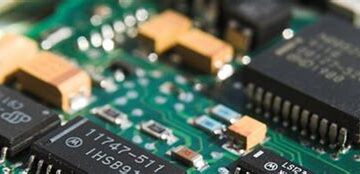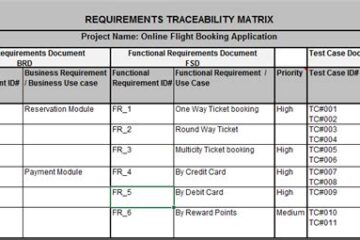Introduction to PCB Etching
PCB (Printed Circuit Board) etching is the process of removing unwanted copper from a PCB to create the desired circuit pattern. While it may seem like an interesting DIY project to attempt at home, there are several reasons why we strongly advise against it. In this article, we will explore nine key reasons why PCB etching should be left to professionals and avoided in a home setting.
1. Safety Risks
Exposure to Hazardous Chemicals
One of the primary reasons we do not recommend PCB etching at home is the potential exposure to hazardous chemicals. The etching process involves the use of strong acids, such as ferric chloride or hydrochloric acid, which can cause severe skin burns, respiratory issues, and eye damage if not handled properly.
Inadequate Safety Equipment
In a home setting, it is unlikely that you will have access to the proper safety equipment, such as a fume hood, protective gloves, and goggles, which are essential when working with dangerous chemicals. Without these safety measures, the risk of accidents and injuries increases significantly.
2. Environmental Concerns
Improper Disposal of Chemicals
Another major issue with home PCB etching is the potential for improper disposal of the hazardous chemicals used in the process. These chemicals can harm the environment if not disposed of correctly, contaminating soil and water sources.
Lack of Proper Waste Management
Most homes do not have the necessary facilities or knowledge to handle the waste generated from PCB etching properly. Professional PCB Manufacturers, on the other hand, have strict waste management protocols in place to ensure the safe and responsible disposal of hazardous materials.

3. Inferior Results
Inconsistent Etching Quality
PCB etching at home is likely to result in inconsistent etching quality due to the lack of precision equipment and controlled environment. This can lead to issues such as over-etching, under-etching, or uneven copper removal, which can compromise the integrity of the circuit.
Lack of Professional Equipment
Professional PCB manufacturers use state-of-the-art equipment, such as computer-controlled etching machines and high-resolution photoplotter systems, to ensure precise and consistent results. Home etching setups simply cannot match the accuracy and reliability of professional equipment.
4. Time-Consuming Process
Steep Learning Curve
PCB etching is not a simple process, and it requires a significant amount of knowledge and practice to achieve satisfactory results. The learning curve can be steep, and it may take several attempts before you can produce a functional PCB.
Labor-Intensive Steps
The PCB etching process involves several labor-intensive steps, such as preparing the artwork, exposing the photoresist, and carefully monitoring the etching progress. These steps can be time-consuming, especially for those who are new to the process.
5. Limited Design Capabilities
Restricted PCB Complexity
Home PCB etching setups are generally limited in their ability to produce complex PCB designs. Features such as fine pitch traces, small vias, and high-density layouts are difficult, if not impossible, to achieve with home etching methods.
Inability to Create Multilayer PCBs
Multilayer PCBs, which are essential for many modern electronic devices, are virtually impossible to create using home etching techniques. Professional PCB manufacturers use advanced processes, such as lamination and plating, to create reliable multilayer boards.
6. Cost-Effectiveness
Initial Investment in Equipment
Setting up a home PCB etching workspace requires an initial investment in equipment, such as a UV exposure unit, etching tank, and various chemicals. While these costs may seem manageable initially, they can quickly add up, especially if you need to purchase additional safety gear or replace consumed materials.
Higher Cost Per Unit
For small-scale production, the cost per PCB unit is likely to be higher when etching at home compared to ordering from a professional PCB manufacturer. This is due to the economies of scale that professional manufacturers benefit from, as well as their optimized processes and materials.
7. Reliability Concerns
Potential for Defects
Home-etched PCBs are more prone to defects, such as shorts, open circuits, and poor adhesion of copper traces. These issues can lead to malfunctions or complete failure of the electronic device, potentially causing frustration and wasted time and resources.
Lack of Quality Control
Professional PCB manufacturers have strict quality control measures in place to ensure that each board meets the required specifications and standards. In a home setting, it is difficult to implement and maintain the same level of quality control, increasing the risk of producing subpar PCBs.
8. Limited Scalability
Difficulty in Producing Large Quantities
Home PCB etching is not suitable for producing large quantities of boards, as the process is manual and time-consuming. If you require multiple copies of a PCB, it is more efficient and cost-effective to outsource the production to a professional manufacturer.
Inability to Meet Tight Deadlines
In many cases, electronic projects have tight deadlines that must be met. Home PCB etching is not ideal for time-sensitive projects, as the process can be unpredictable and prone to delays. Professional PCB manufacturers, on the other hand, have streamlined processes and can often deliver high-quality boards within a short timeframe.
9. Availability of Affordable PCB Services
Emergence of Low-Cost PCB Manufacturers
In recent years, there has been a surge in low-cost, online PCB manufacturing services that cater to individuals and small businesses. These services offer high-quality PCBs at competitive prices, making it more accessible and affordable than ever to obtain professionally manufactured boards.
Benefits of Using Professional PCB Services
By using professional PCB manufacturing services, you can benefit from their expertise, advanced equipment, and quality control measures. This ensures that you receive reliable, high-quality PCBs without the risks and challenges associated with home etching.
Frequently Asked Questions (FAQ)
1. Is it legal to etch PCBs at home?
While it is not illegal to etch PCBs at home, there are several safety and environmental concerns that make it inadvisable. It is essential to check with your local authorities regarding the proper handling and disposal of the hazardous chemicals used in the etching process.
2. Can I use a CNC machine for home PCB etching?
CNC machines can be used for PCB etching, but they require specialized knowledge and software to operate effectively. Additionally, CNC machines suitable for PCB etching can be expensive, and the process still involves the use of hazardous chemicals, which poses safety and environmental risks.
3. Are there any safe alternatives to chemical etching for home PCB fabrication?
There are some alternative methods for home PCB fabrication, such as mechanical etching or using a conductive ink pen. However, these methods have limitations in terms of precision, consistency, and the complexity of the designs that can be achieved.
4. How much does it cost to have a PCB professionally manufactured?
The cost of professionally manufactured PCBs varies depending on factors such as the size, complexity, and quantity of the boards. However, many online PCB manufacturing services offer competitive prices, with some providing low-cost options for small-batch production or prototyping.
5. How long does it take to receive a professionally manufactured PCB?
The turnaround time for professionally manufactured PCBs depends on the service provider and the specific requirements of your project. Some manufacturers offer expedited services for an additional fee, while others may have longer lead times. On average, you can expect to receive your PCBs within 1-2 weeks from placing your order.
Conclusion
While the idea of etching PCBs at home may seem appealing to hobbyists and DIY enthusiasts, the risks and challenges involved make it an ill-advised endeavor. From safety concerns and environmental issues to inferior results and limited scalability, there are numerous reasons why we strongly recommend against home PCB etching.
Instead, consider taking advantage of the many affordable and reliable PCB manufacturing services available today. By doing so, you can ensure that your electronic projects are built on a solid foundation of high-quality, professionally manufactured PCBs while avoiding the potential pitfalls of home etching.
| Aspect | Home PCB Etching | Professional PCB Manufacturing |
|---|---|---|
| Safety | High risk | Controlled environment |
| Environmental Impact | Potential hazards | Proper waste management |
| Quality | Inconsistent | High and consistent |
| Design Capabilities | Limited | Advanced |
| Cost-Effectiveness | Higher per unit | Economies of scale |
| Reliability | Prone to defects | Strict quality control |
| Scalability | Limited | Suitable for large quantities |
| Turnaround Time | Unpredictable | Predictable and often faster |
In conclusion, while PCB etching may seem like an interesting and challenging project to take on at home, the benefits of professional PCB manufacturing far outweigh the risks and limitations of home etching. By entrusting your PCB fabrication to experienced professionals, you can ensure the success and reliability of your electronic projects while saving time, money, and potential headaches in the long run.



0 Comments